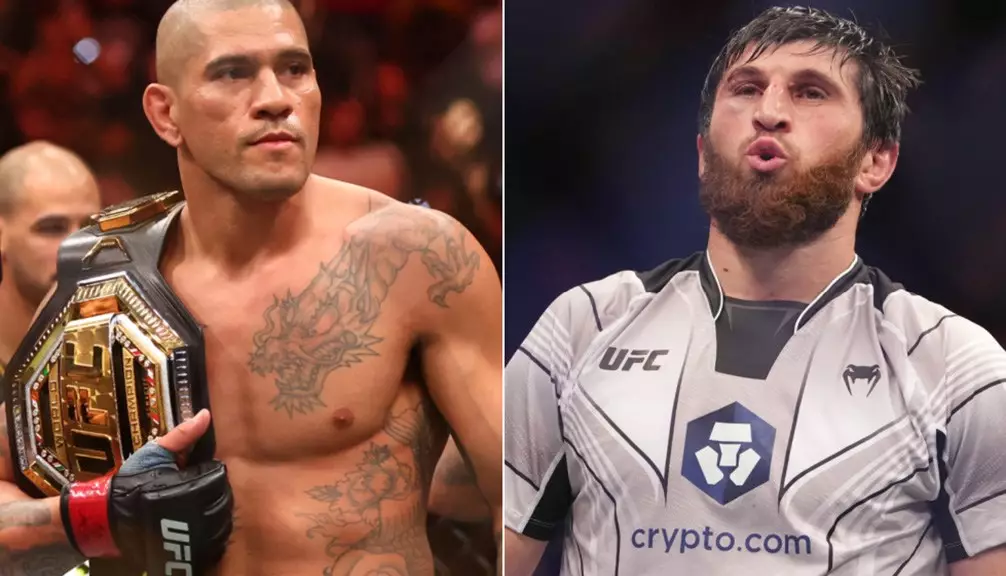The anticipation for the next light heavyweight title fight in the UFC is building, particularly with the prospect of Magomed Ankalaev facing off against reigning champion Alex Pereira. With an impressive record of 19-1-1, Ankalaev has laid a solid claim to the title shot, yet doubts hover regarding his ability to dethrone “Poatan” Pereira, whose striking prowess and championship experience present a formidable challenge. This situation has garnered attention from numerous analysts and former fighters, including UFC Hall of Famer Michael Bisping, who is skeptical about Ankalaev’s chances of victory.
Michael Bisping has pointed out some critical flaws in Ankalaev’s approach to fighting Pereira. While evaluative discussions tend to focus solely on records and statistics, Bisping sheds light on a psychological aspect that might hinder Ankalaev. He suggested that past opponents of Pereira, such as Khalil Rountree Jr. and Jiri Prochazka, all possessed commendable skills but fell short against Pereira’s fierce striking and tactical acumen. This trend is disturbing and makes one question whether Ankalaev will learn from these missteps or repeat them, particularly given his insistence on avoiding ground work.
Though Ankalaev’s background includes wrestling, his clear intention to avoid using that facet of his skill set leaves many analysts bewildered. Bisping emphasized the absurdity of ignoring one’s strengths when facing an opponent as dangerous as Pereira. Ankalaev’s size and grappling ability are potential game-changers; however, without active implementation of wrestling techniques, he risks becoming a predictable target for Pereira. This strategic choice appears less like a clever game plan and more akin to setting oneself up for failure against a fighter whose knockout power has been proven time and again.
The Stakes Moving Forward
Ankalaev’s recent performances, including his decisive victory over Aleksandar Rakic, have indeed bolstered his contender status, extending his unbeaten streak to an impressive 13 fights. However, victories against such opponents cannot overshadow the unique challenges presented by Pereira, who has demonstrated time and again that he is a different breed of fighter. With Pereira’s ability to absorb punishment and counter with lethal efficiency, the need for a solid and versatile fight strategy is amplified.
As the possibility of a title bout looms, the narrative surrounding Ankalaev and Pereira is increasingly compelling. There is a sheer unpredictability in combat sports, but Bisping’s cautionary analysis should serve as a wake-up call for Ankalaev. The challenge lies not only in the exchange of strikes but in understanding that success against Pereira could very well depend on a well-rounded approach—one that embraces every element of mixed martial arts, including leveraging wrestling to neutralize Pereira’s striking advantage. If Ankalaev fails to adapt, he faces a strong likelihood of suffering the same fate as those who came before him, leaving Pereira firmly seated atop the light heavyweight division.

